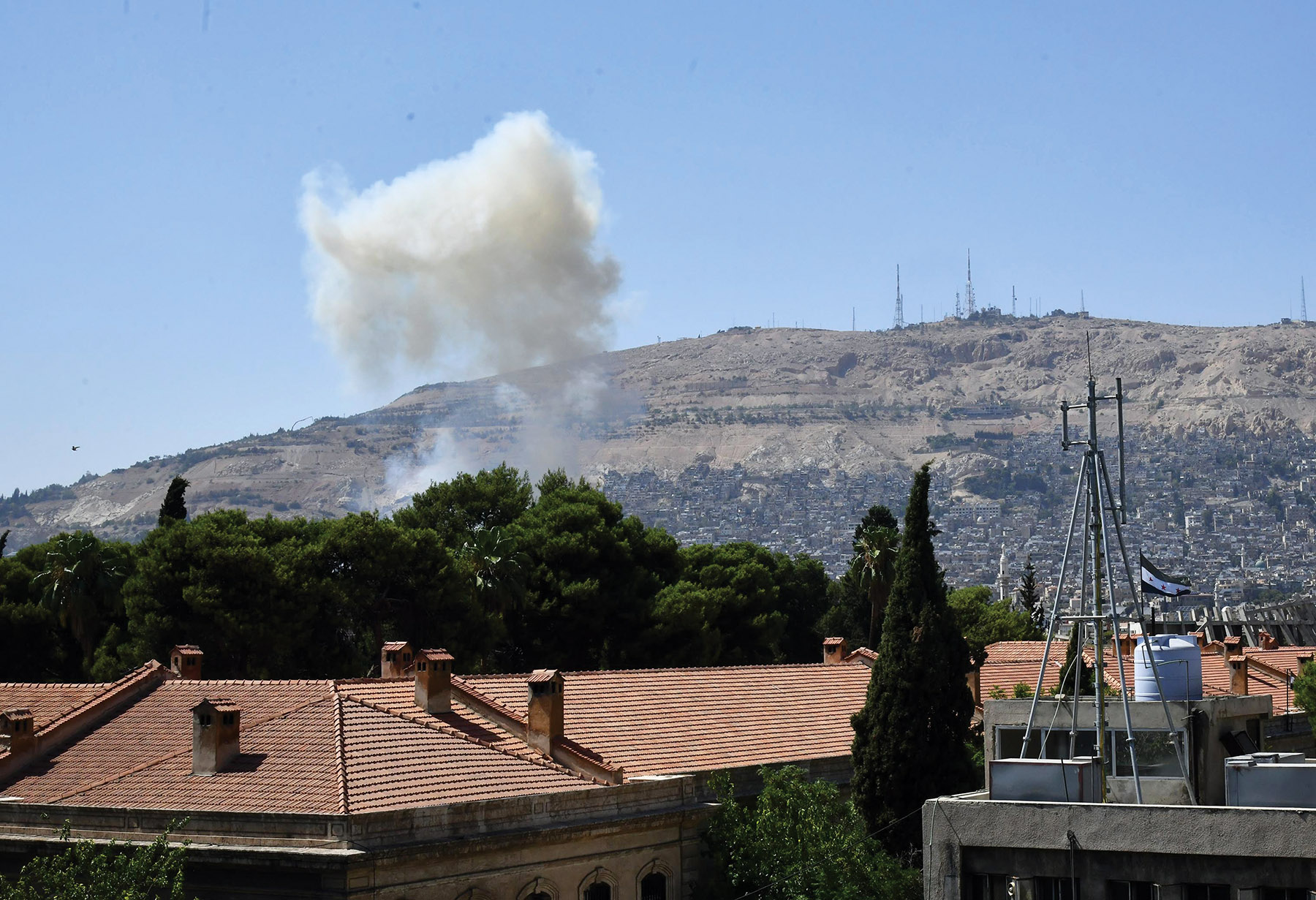
DAMASCUS, Syria — Countries in the Middle East have condemned the Israeli airstrikes targeting the Syrian Army General Command headquarters and the presidential palace area in central Damascus.
Israel launched a wave of airstrikes on Damascus on July 16, targeting high-profile government and military sites in a dramatic escalation. At least five missiles struck the Syrian Army’s General Command headquarters and the defense authority compound in Umayyad Square, a symbolic heart of state authority.
Additional strikes hit the vicinity of the Al-Shaab presidential palace situated on a mountain overlooking the capital.
Footage aired by local TV showed widespread destruction and rising smoke in central Damascus. The Syrian health authorities reported that at least one civilian was killed and 19 others injured in the strikes.
The General Command building suffered extensive damage, and several adjacent government buildings and roads were left in ruins.
In a statement, the Israeli military said it had targeted command sites from which Syrian forces had launched operations against the Druze community in Sweida. The strikes were intended to “deter further aggression” and “defend vulnerable communities”, it said.
The Syrian foreign affairs authorities condemned the Israeli assault as a “flagrant violation of Syrian sovereignty and international law”, warning it could ignite wider instability.
In a televised address, Syrian interim government leader Ahmed al-Sharaa said the Druze citizens will be protected, and, “We reject any attempt to drag you into the hands of an external party”.
Both United Nations Secretary-General Antonio Guterres and Gulf Cooperation Council Secretary-General Jasem Mohamed Albudaiwi condemned Israel’s air strikes.
The Arab League denounced the attacks as “blatant assault” on the sovereignty of an Arab state that is a member of both the Arab League and the United Nations.
It also accused Israel of seeking to sow chaos in Syria by exploiting recent events in Sweida province.
Egypt’s Foreign Ministry said these repeated Israeli violations only serve to deepen tensions and represent a fundamental source of instability in Lebanon, Syria, and the broader region.
Algeria denounced the assault as a “flagrant violation of Syria’s sovereignty and unity”, and expressed full solidarity with Syria’s right to defend its stability in line with the UN Charter and international law.
The Iraqi Foreign Ministry affirmed its absolute rejection of endangering the lives of Syrian civilians and exacerbating their humanitarian suffering. It stressed the need to de-escalate the situation, as it poses a direct threat to the security and stability of the region.
US Secretary of State Marco Rubio said the United States was “very concerned” about the escalation in violence. Turkiye’s Ministry of Foreign Affairs condemned the attacks and said they were an attempt to sabotage Syria’s efforts to achieve peace, stability and security.
Iranian Foreign Minister Seyed Abbas Araghchi on July 16 condemned the attacks, saying on his X post, “Unfortunately, this was all too predictable. Which capital is next?”
The Israeli strikes were initially limited to Sweida province before extending to the capital.
The escalation in Sweida began on July 13 after armed members of a Bedouin tribe reportedly assaulted and robbed a young Druze man near the town of al-Masmiyah. The brutal attack sparked retaliatory kidnappings, spiraling into full-scale clashes.
Since July 13 morning, the death toll from armed clashes, summary executions, and Israeli airstrikes in Syria’s Sweida province has risen to 302, according to the Syrian Observatory for Human Rights.
Later, a fragile ceasefire between Syria’s interim government and Druze spiritual leaders entered into effect on July 16 night in Syria’s southern province of Sweida, as Syrian interim government troops began withdrawing following days of deadly clashes between government forces, Druze fighters, and Bedouin tribes, according to state-run media outlets.
A statement from Syria’s interior authorities said the agreement includes a complete cessation of hostilities, the return of army units to their barracks, and the full reintegration of Sweida into state control.
Cui Haipei in Dubai, UAE, contributed to this story.


